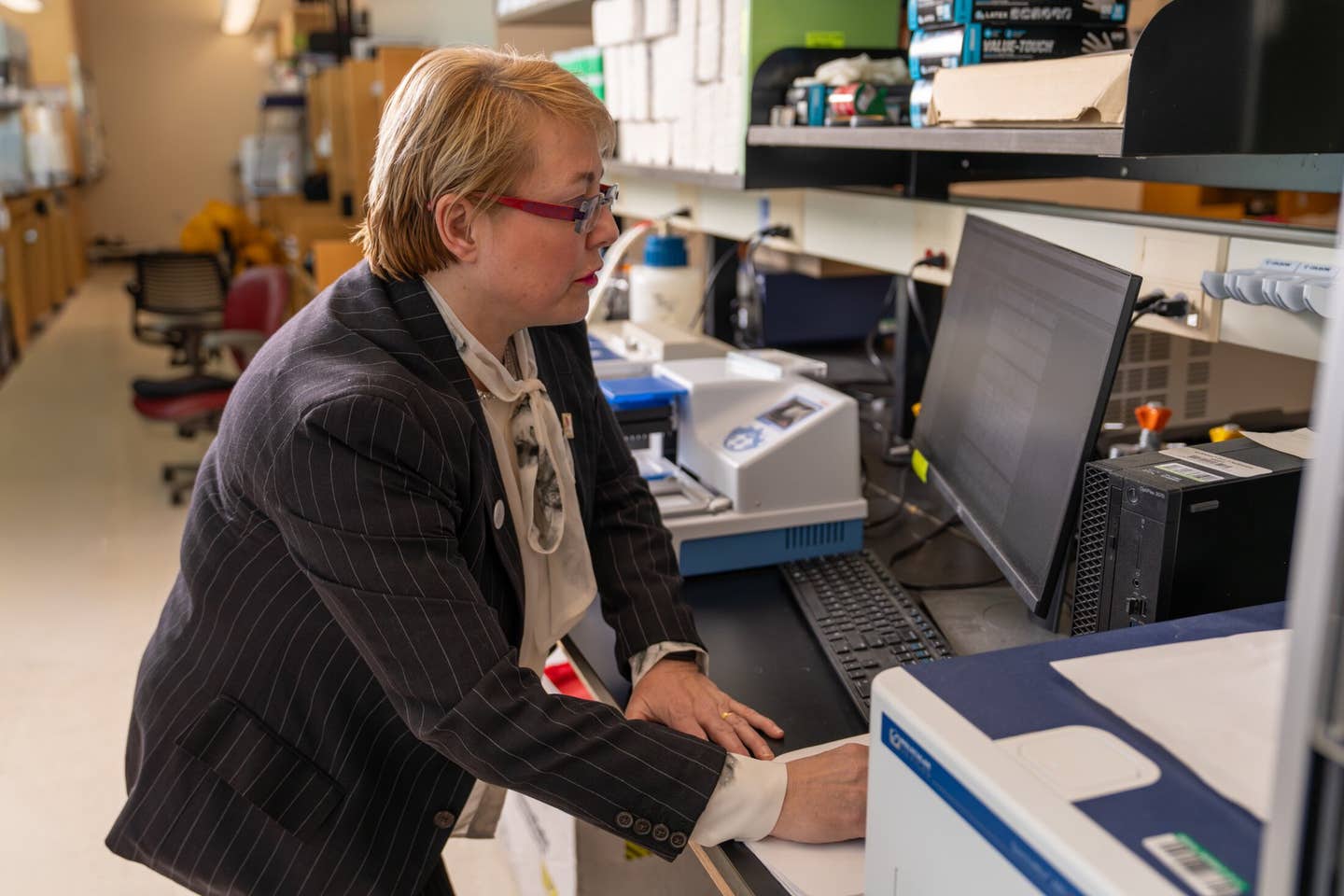Omega-3’s could protect women from Alzheimer’s disease
New research suggests omega fatty acids could protect women from Alzheimer’s, highlighting key sex differences in brain health.

Omega fatty acids could help shield women from Alzheimer’s, study finds. (CREDIT: Shutterstock)
New research from King’s College London and Queen Mary University of London is shedding light on a mystery that has puzzled scientists for decades: why Alzheimer’s disease strikes women more often than men. The answer may lie, at least in part, in the fats that flow through your bloodstream.
Lipids and the Brain
Fat molecules, known as lipids, are essential for keeping your brain healthy. They help protect nerve cells, build membranes, and regulate inflammation. Not all fats are equal, though. Unsaturated fats, which include omega fatty acids, are considered “healthy” because they support heart and brain health. Saturated fats, on the other hand, are often labeled “unhealthy” because they can contribute to disease when found in excess.
In this study, researchers analyzed blood plasma from 841 people divided into three groups: 306 with Alzheimer’s, 165 with mild cognitive impairment, and 370 who were cognitively healthy. Using mass spectrometry, a tool that can measure hundreds of different lipids at once, the team looked at about 700 unique fat molecules in each person’s blood.
Striking Differences Between Men and Women
The results were clear. Women with Alzheimer’s had far lower levels of omega-containing lipids compared with women who were cognitively healthy. They also had much higher levels of saturated fats. In total, 32 types of lipids were linked to the disease in women, while none showed the same pattern in men.
Surprisingly, men with Alzheimer’s showed no meaningful changes in their lipid makeup compared to healthy men. This finding suggests that fat metabolism in the brain may be tied to Alzheimer’s in women in a way that it is not for men.
Senior author Dr. Cristina Legido-Quigley explained, “Women are disproportionately impacted by Alzheimer’s Disease and are more often diagnosed with the disease than men after the age of 80. One of the most surprising things we saw when looking at the different sexes was that there was no difference in these lipids in healthy and cognitively impaired men, but for women this picture was completely different. The study reveals that Alzheimer's lipid biology is different between the sexes, opening new avenues for research.”
Related Stories
- Scientists identify the primary driver of Alzheimer’s disease
- Alzheimer’s disease affects men and women very differently, experts find
Why This Matters
Alzheimer’s affects nearly two-thirds women in the UK, according to Alzheimer’s Research UK. This higher rate has sometimes been explained by the fact that women generally live longer, but the new research points to deeper biological differences.
Dr. Julia Dudley, Head of Research at Alzheimer’s Research UK, said, “In the UK, two in three people living with dementia are women. This could be linked to living longer, or other risk factors like social isolation, education, or hormonal changes from the menopause being at play. While this study shows that women with Alzheimer’s had lower levels of some unsaturated fats compared with men, further work is needed.”
The connection between fat molecules and brain health is not just academic. Lipids play a direct role in inflammation, memory function, and the structure of brain cells. The fact that omega fatty acids are specifically reduced in women with Alzheimer’s raises the possibility that diet or supplements could influence the course of the disease.
The Omega Fatty Acid Connection
Omega-3 fatty acids are found in foods like salmon, mackerel, walnuts, and flaxseed. They can also be taken as supplements. While scientists caution that it is too soon to recommend supplements as a proven preventive measure, the results are suggestive.
Dr. Legido-Quigley noted, “Our study suggests that women should make sure they are getting omega fatty acids in their diet – through fatty fish or via supplements. However, we need clinical trials to determine if shifting the lipid composition can influence the biological trajectory of Alzheimer’s Disease.”
Dr. Asger Wretlind, the study’s first author, added, “Scientists have known for some time that more women than men are diagnosed with Alzheimer’s disease. Although this still warrants further research, we were able to detect biological differences in lipids between the sexes in a large cohort, and show the importance of lipids containing omegas in the blood, which has not been done before. The results are very striking and now we are looking at how early in life this change occurs in women.”
Next Steps in Research
The scientists stress that more studies are needed, especially clinical trials that test whether boosting omega fatty acids in women can actually prevent or slow Alzheimer’s. They also want to study more diverse populations, since the participants in this trial were not representative of all ethnic groups.
Funding for the work came from LundbeckFonden and Alzheimer’s Research UK. The study was published in Alzheimer’s & Dementia: The Journal of the Alzheimer’s Association.
Practical Implications of the Research
If confirmed, these findings could change how doctors approach Alzheimer’s prevention and treatment for women. Identifying sex-specific biological differences may allow for more personalized health advice and medical care.
For women, making sure diets include omega-rich foods or supplements could one day become part of standard recommendations for brain health. Ultimately, this work could bring us closer to tailored therapies that account for the unique ways Alzheimer’s develops in men and women.
Note: The article above provided above by The Brighter Side of News.
Like these kind of feel good stories? Get The Brighter Side of News' newsletter.



